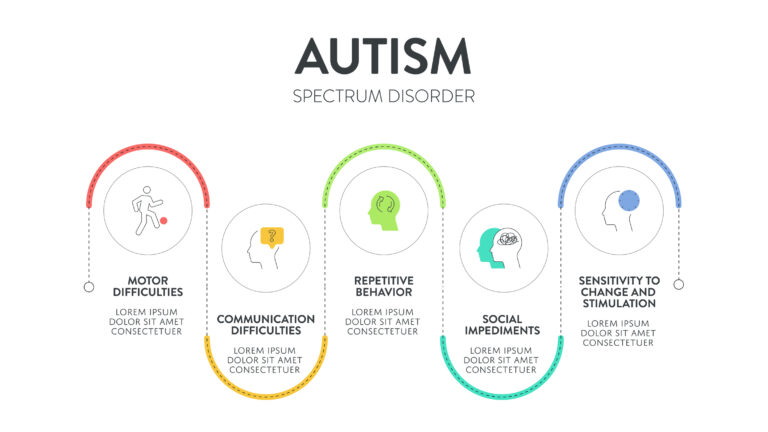Children with Autism
Autism, or Autism Spectrum Disorder (ASD), is a neurodevelopmental condition that affects how individuals perceive the world and interact with others. It is characterised by differences in social communication, sensory processing, and repetitive behaviours. The condition varies widely among children, with some requiring substantial support while others may be highly independent.
Early Signs and Diagnosis
Signs of autism often appear in early childhood, typically before the age of three. Parents and caregivers may notice that a child has difficulty with eye contact, struggles to engage in typical social interactions, or displays repetitive behaviours such as hand-flapping or lining up toys. Some children with autism may have delayed speech or prefer non-verbal communication, while others may develop advanced language skills but struggle with pragmatic aspects of conversation.
Diagnosis usually involves a combination of parental observations, developmental assessments, and professional evaluations by paediatricians, psychologists, or speech and language therapists. Early diagnosis can be beneficial, as it allows for early intervention strategies that can support a child’s communication and social development.
Social and Communication Challenges
One of the key aspects of autism is difficulty in understanding social cues. Many autistic children struggle with interpreting facial expressions, tone of voice, and body language. This can make it challenging for them to form friendships or navigate group interactions. Some may prefer structured, predictable interactions over spontaneous social engagement.
Communication differences are also common. While some autistic children may be completely non-verbal, others may have an extensive vocabulary but find it difficult to engage in reciprocal conversations. Echolalia, where a child repeats words or phrases, is also a frequent characteristic of autism. Speech and language therapy can help develop functional communication strategies, whether through speech, sign language, or assistive communication devices.
Sensory Sensitivities and Behaviour
Many autistic children experience heightened or reduced sensitivity to sensory stimuli. They may be overwhelmed by loud noises, bright lights, or strong smells, leading to distress or withdrawal. Conversely, some may seek out certain sensory experiences, such as spinning in circles, feeling different textures, or watching repetitive movements.
Routine and predictability are important for many autistic children. Unexpected changes can cause anxiety or distress, leading to meltdowns or shutdowns. Parents and educators often use visual schedules, social stories, and structured routines to help autistic children feel more secure in their environment.
Education and Support
With the right support, autistic children can thrive in educational settings. Special educational needs (SEN) provisions, one-to-one support, and tailored learning approaches can help address individual needs. Many autistic children excel in subjects that align with their specific interests and abilities.
Understanding, acceptance, and early intervention play crucial roles in helping children with autism develop their strengths and navigate challenges in daily life.
You are here:
home » Children with Autism

